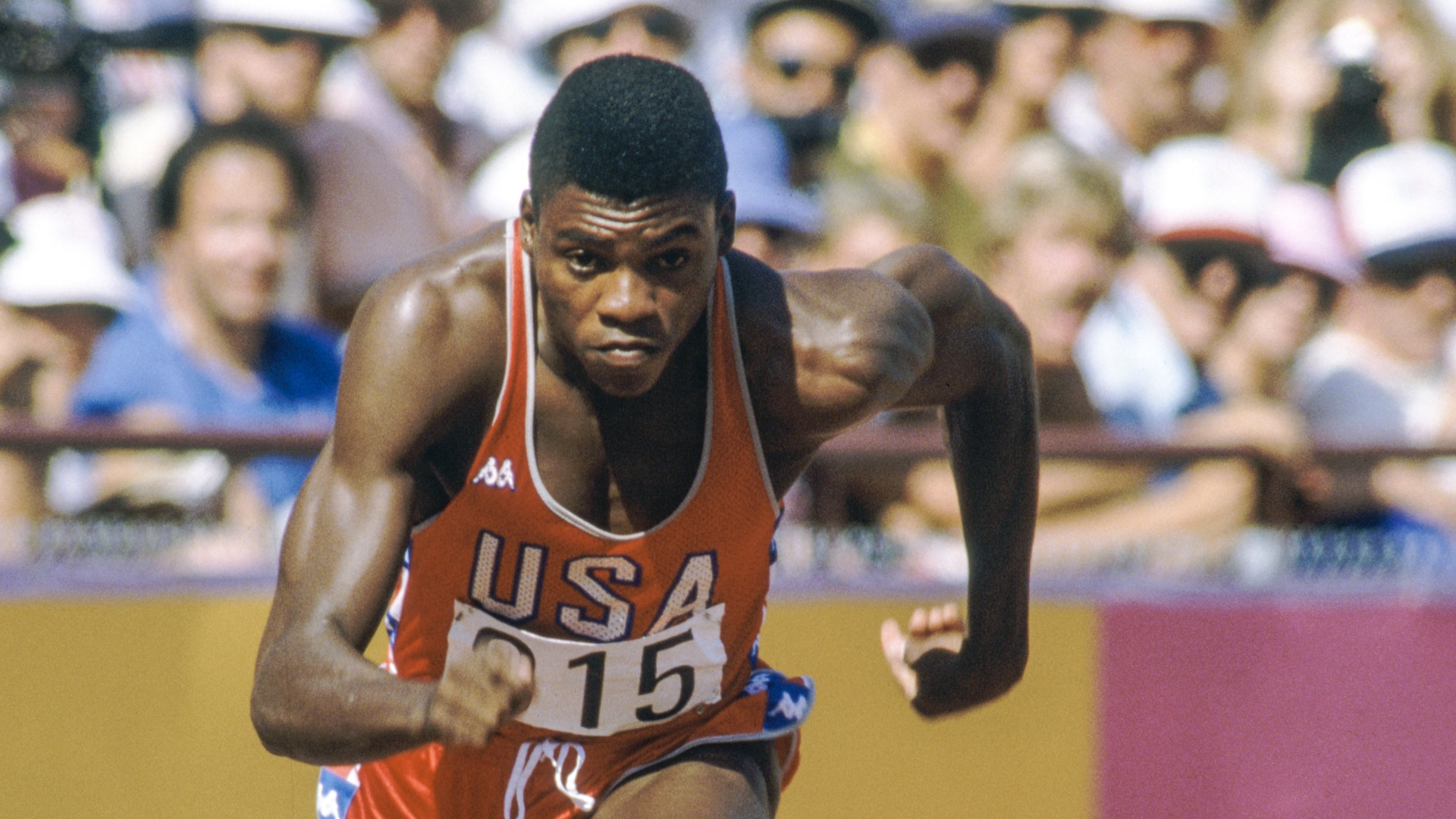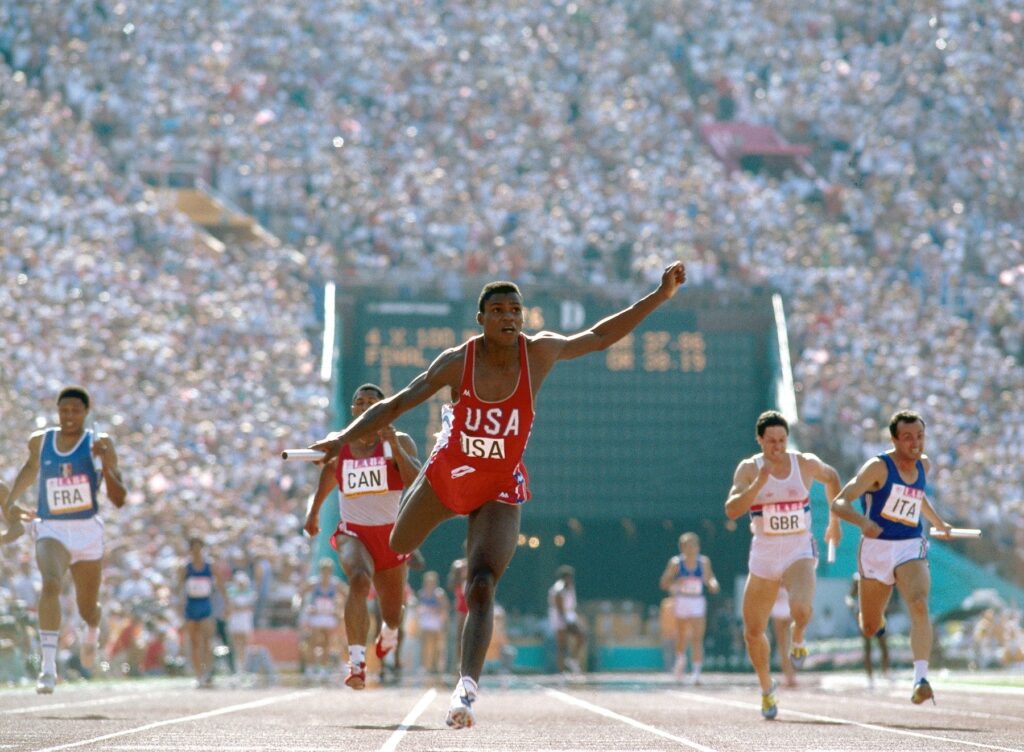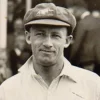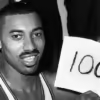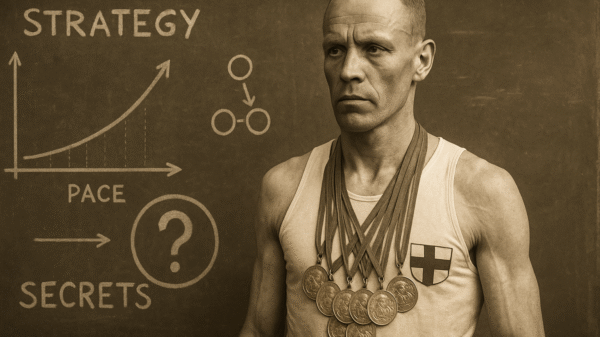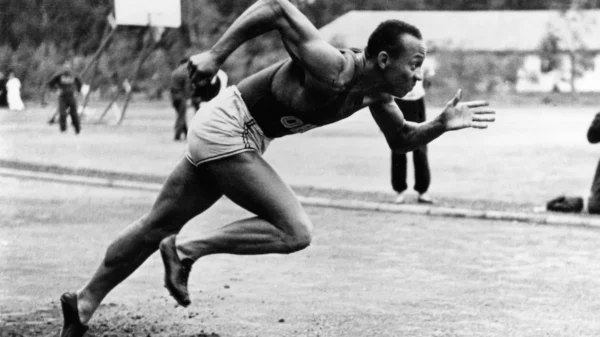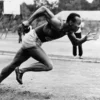Table of Contents
Introduction to Carl Lewis’ Olympic Legacy
Carl Lewis, a name synonymous with excellence in track and field, is recognized as one of the greatest Olympians in history. Born on July 1, 1961, in Birmingham, Alabama, Frederick Carlton Lewis transformed athletics with his unmatched versatility and dominance in both the 100 meters sprint and the long jump. His Olympic journey is not only a testament to relentless dedication and natural talent but also showcases extraordinary athleticism, strategic training, and the mental toughness required to excel at the highest level.
Carl Lewis’ Olympic Debut: 1984 Los Angeles Games
Carl Lewis made his Olympic debut at the 1984 Los Angeles Games, delivering a performance that echoed Jesse Owens’ historic feats from 1936. Lewis won four gold medals in the following events:
- 100 meters sprint
- 200 meters sprint
- Long jump
- 4×100 meters relay
His remarkable achievement not only highlighted his sprinting prowess but also his exceptional jumping skills. This quadruple gold medal haul placed him among the greatest athletes of all time, and it is essential to delve into the strategies and techniques that allowed him to achieve such success. Analyzing his training regimens, mental preparation, and competitive mindset reveals the depth of his athletic capabilities.
Dominance in Subsequent Olympics (1988, 1992, 1996)
1988 Seoul Olympics
Despite facing fierce competition and controversy, Carl Lewis showcased resilience at the 1988 Seoul Olympics. He secured two more gold medals in:
- 100 meters sprint (after Ben Johnson’s disqualification)
- Long jump
This victory solidified his reputation as a global sprinting and jumping powerhouse, showcasing not only his physical attributes but also his ability to perform under pressure. The way he handled the intense media scrutiny and the expectations placed upon him is a lesson in mental resilience that aspiring athletes can learn from.
1992 Barcelona Olympics
At the age of 31, Lewis defied age norms at the 1992 Barcelona Olympics. He won:
- Gold in the long jump
- Gold in the 4×100 meters relay (where the U.S. team set a new world record)
Lewis’s continued dominance not only highlighted his unparalleled longevity in athletics but also emphasized the importance of adapting to the evolving landscape of competitive sports. He frequently analyzed his performance data, made adjustments to his training, and embraced new techniques that enhanced his capabilities, serving as a model for athletes navigating the complexities of modern athletics.
1996 Atlanta Olympics
Carl Lewis capped off his Olympic career at the 1996 Atlanta Games by winning his fourth consecutive gold medal in the long jump, a feat unmatched in Olympic history. At 35, this victory demonstrated his lasting athletic brilliance, illustrating how strategic planning and consistent effort can lead to success even in the face of physical decline often seen in older athletes.
Total Olympic Medal Tally and Records
Carl Lewis’s Olympic career boasts an astounding 9 gold medals and 1 silver medal across four Olympic Games. His achievements include:
- 4 consecutive gold medals in the long jump (1984-1996)
- Dominance in sprints and relays
- Consistent top-level performance for over a decade
His longevity and consistency are benchmarks for aspiring athletes worldwide, and they underscore the need for a holistic approach to training that encompasses physical conditioning, mental preparation, and lifestyle choices. Emphasizing recovery, nutrition, and psychological resilience are crucial components in the journey of any athlete aiming for greatness.
Impact on Track and Field and Global Athletics
Carl Lewis’s Olympic triumphs transformed track and field into a globally celebrated sport. His blend of speed, power, and agility inspired countless athletes to pursue excellence. He also:
- Elevated the prestige of American sprinting and jumping.
- Paved the way for future stars like Usain Bolt.
- Advocated for fair play and anti-doping measures in athletics.
Lewis’s influence extends beyond medals; he reshaped how athletes approach versatility and longevity in competitive sports. His advocacy for clean sport and integrity in athletics reflects a commitment to the values of the sport that resonate with fans and aspiring athletes alike, establishing a legacy built on principles that go beyond mere competition.
Carl Lewis’s Legacy Beyond the Olympics
After retiring from competitive athletics, Carl Lewis transitioned into roles that continued to impact the sporting world:
- Coaching: Mentoring upcoming athletes and sharing his expertise.
- Advocacy: Promoting clean sports and health awareness.
- Entertainment: Venturing into acting and music, showcasing his diverse talents.
His dedication to athletics and sportsmanship has made him an enduring figure in global sports history, and his efforts in coaching and mentoring emerging athletes have had a profound impact on the next generation. By sharing his journey and insights, he cultivates a culture of excellence that inspires young athletes to pursue their passions with the same fervor he demonstrated throughout his career.
Conclusion: Carl Lewis’s Enduring Olympic Influence
Carl Lewis’s Olympic journey is a narrative of relentless ambition, unmatched versatility, and timeless excellence. His nine Olympic gold medals and monumental achievements continue to inspire athletes globally. His legacy serves as a reminder that with passion, determination, and a commitment to continuous improvement, greatness is within reach. Understanding his approach to training, competition, and life can guide aspiring athletes everywhere, showcasing the profound impact one individual can have on the world of sport.
Carl Lewis is not just an Olympic champion; he is an enduring symbol of human potential and athletic brilliance.
The Evolution of Track and Field Through Carl Lewis’s Career
Throughout his illustrious career, Carl Lewis witnessed and contributed to significant changes in track and field. From advancements in training techniques to the introduction of technology in sports science, Lewis remained at the forefront of these evolutions. The introduction of electronic timing and enhanced footwear technology transformed performance metrics, while Lewis’s approach to biomechanics and nutrition set new standards for athlete preparation. His willingness to embrace these innovations while maintaining a focus on fundamentals allowed him to remain competitive and relevant across multiple Olympic cycles.
Carl Lewis: A Role Model for Future Generations
Beyond his athletic achievements, Carl Lewis serves as a role model for future generations in various ways. He emphasizes the importance of discipline, hard work, and resilience, which resonates with young athletes. His commitment to social causes, including health awareness and anti-doping advocacy, positions him as an influential figure who reflects the values of integrity and fairness in sports. His story encourages young athletes to not only strive for personal excellence but also to contribute positively to their communities and the world beyond sports.
Analyzing Carl Lewis’s Technique: The Science of Sprinting and Jumping
Carl Lewis’s technique in both sprinting and jumping exemplifies the harmony of strength, speed, and agility. His sprinting form, characterized by powerful strides and efficient arm movement, can be studied to understand the biomechanics of speed. Similarly, his long jump technique, marked by impeccable take-off and landing mechanics, offers vital insights into the physics of flight and acceleration. Coaches and athletes alike can learn from analyzing Lewis’s performances, applying principles of sports science to enhance their training and execution in these events.
The Cultural Significance of Carl Lewis in Sports
Carl Lewis transcended the realm of athletics to become a cultural icon. His impact on popular culture, including appearances in films, television, and various media, has cemented his status as a household name. By bridging the gap between sports and entertainment, Lewis’s influence extends to initiatives promoting diversity and inclusion in athletics. Understanding the cultural significance of athletes like Lewis is essential for appreciating the interplay between sports, society, and individual identity, setting a precedent for future athletes to follow in his footsteps.


